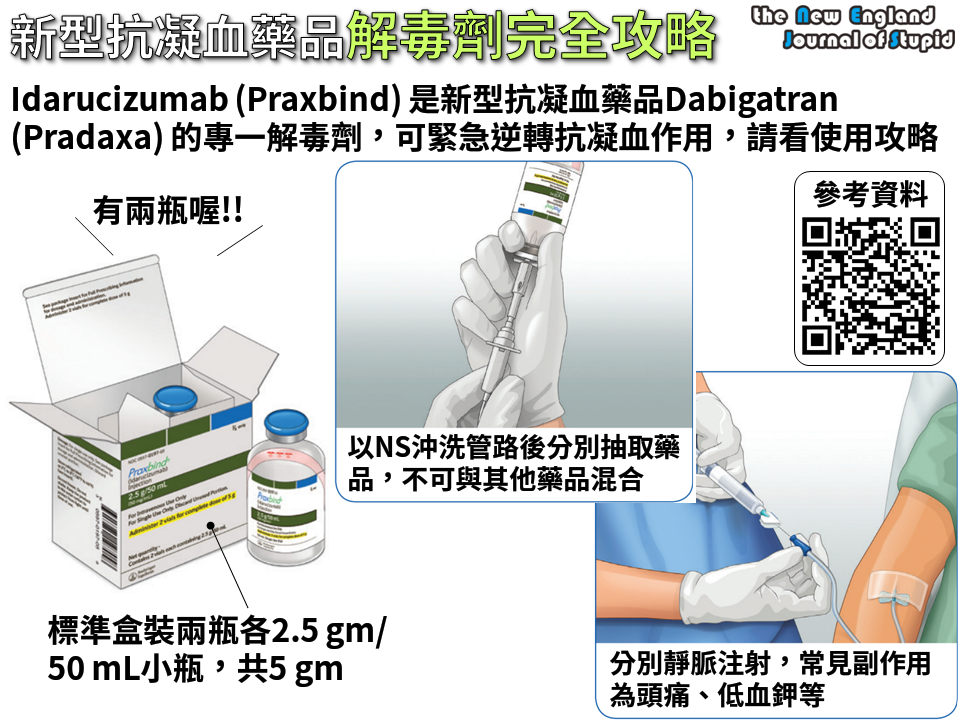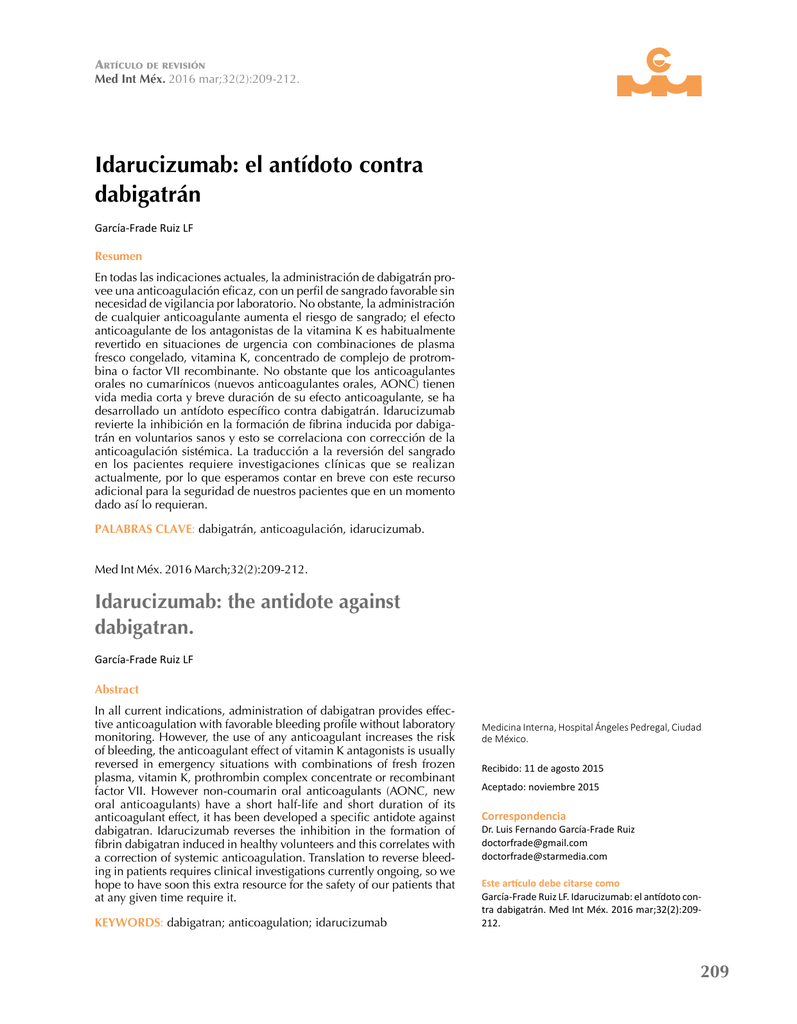

Idarucizumab is the first medicine designed to specifically neutralise the anticoagulant effect of one of the non-vitamin K oral anticoagulants (NOACs), namely dabigatran. The Committee for Medicinal Products for Human Use (CHMP) decided to speed up the evaluation of this medicine and recommended granting a marketing authorisation following an accelerated assessment, given its potential to respond to an unmet medical need. Idarucizumab is to be used when a patient taking dabigatran needs to undergo an emergency surgery or when life-threatening or uncontrolled bleeding occurs. Emergency Department, Policlinico Umberto I Hospital in Rome, “Sapienza University of Rome”, Viale del Policlinico, 155 - 00161 Rome,ItalyĪbstract: Introduction: The widespread use of direct oral anticoagulants (DOACs) has beenThe European Medicines Agency (EMA) has recommended granting a marketing authorisation for idarucizumab as a specific antidote to the anticoagulant medicine dabigatran etexilate, when rapid reversal of its effect is required.Title:Dabigatran Reversal with Idarucizumab in an Emergency Lumbar Puncture: A Case ReportĪuthor(s): Ornella Spagnolello*, Federica Letteri, Anne Falcou, Lorena Cipollone, Manuela De Michele, Giuliano Bertazzoni and Danilo Toni Keywords: Direct oral anticoagulants reversal, idarucizumab, dabigatran, emergency lumbar puncture, urgent invasive procedures,

Treatment with Dabigatran 150 mg twice a day. Possible diagnosis of encephalitis and a previous history of venous thromboembolism on long-term Recognized as an invasive procedure at major bleeding risk and is, therefore, contraindicated in anticoagulatedĬonclusion: We report a successful use of Idarucizumab in an emergency LP of a young woman with a However, real-worldĮxperience of its effective use in different emergency setting is now required. Opportunity to rapidly and safely neutralize the anticoagulant effect of Dabigatran.

The recent approval of Idarucizumab, a humanized monoclonal antibody fragment (Fab), offered the In case of life-threatening bleeding or need of urgent surgery or invasive procedures. Increasing the conditions in which emergency physicians are forced to rapidly reverse anticoagulation Introduction: The widespread use of direct oral anticoagulants (DOACs) has been


 0 kommentar(er)
0 kommentar(er)
